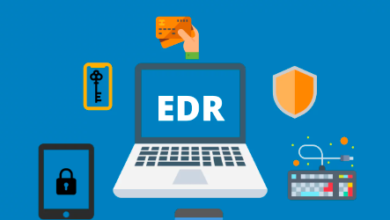Intensify the Identification of Narcotics Trafficking Activities With KingPin Law

During the 1980s to 1990s, a significant surge in narcotic drug cartels and trafficking was observed. These increasing crimes alarmed the Office of Foreign Asset Control (OFAC) to extensively screen the customers against illicit operations. Thereby, approximately 4,749 individuals were imprisoned due to drug offenses in 1980. To rectify such drug trafficking instances, the US OFAC department implemented an act known as the Kingpin Law to streamline the identification of individuals and enterprises involved in illegal activities. This act enables the higher law enforcement authorities to sanction entities and label them as foreign narcotics traffickers due to involvement in drug trafficking.
Understanding Foreign Narcotics Kingpin Designation Act – A Brief Outlook
The Foreign Narcotics Kingpin Designation Act, most commonly known as the Kingpin Law, is an initiative taken by the US government to regulate the identification of entities that facilitate drug cartels and trafficking. The Kingpin Act urges the US authorities to impose sanctions on entities to restrict them from committing illicit activities.
Identifying potential entities in kingpin lists allows authorities to freeze their assets. Additionally, it bans their trading activities with various organizations, either domestically or globally. The identified narcotics traffickers are restricted from conducting any business or financial dealings with the US-based organizations. In the past, this act was restricted to Western organizations, but later, its implementation was recognized as important globally.
Kingpin Designation Act in Response to EFG’s Illicit Activities – An Example
OFAC department is responsible for enforcing the kingpin laws. This department requires businesses to include these sanctioned entities in the Specially Designated National (SDN) lists. For this reason, OFAC stresses businesses screen the suspects against SDN lists to identify illicit individuals.
The significance of the Kingpin Designation Act is prominently examined in the EFG case. EFG is a private Swiss bank that was charged with extensive monetary penalties due to the violation of the kingpin law. This bank facilitated the investment of securities undertaken by the sanctioned entities in the SDN lists. EFG was found guilty of activating the bank account of a Chinese individual who was mentioned in the SDN list due to narcotics trafficking activities.
Repercussions of Violating the Kingpin Sanction Regulations
Non-compliance with the kingpin law leads to severe repercussions and consequences for the involved entities. Some of the most renowned repercussions in response to violation of this law are:
- The identified entities face the freezing of assets that are registered under their personal and business identities. Additionally, these entities are restricted from conducting business operations with US organizations.
- Kingpin law prohibits illicit entities from engaging in transactional activities with the US organizational bodies.
- OFAC enforces extensive visa restrictions for entities found guilty of the narcotics trafficking act.
Who are Drug Kingpins? Identify Their Ill Trafficking Practices
Drug kingpins are the sole operators of narcotics trafficking activities. They are in charge of managing all the activities related to drug cartels. However, these individuals operate in the backend in order to avoid legal repercussions and regulatory issues. Therefore, the identification of these entities is necessary to combat illicit operations in real-time.
Challenges Faced During the Implementation of Kingpin Law
Just like regular screening practices, Kingpin Law is also vulnerable to several challenges due to continuous database changes and updations. These continuous changes complicate the sanction and SDN procedures, which leads to increasing false positive instances. Moreover, the evolution of technologically advanced tools has enabled imposters to conceal their drug trafficking activities effectively.
Narcotics traffickers use unauthorized channels that are not recognized by legitimate entities to launder drugs globally while preventing regulatory obligations. These challenges require businesses to adopt strict AML regulations, which are briefly examined in the next section.
Importance of AML Regulations in Ensuring Kingpin Compliance
The implementation of effective kingpin laws significantly relies on compliance with AML laws. This involves the businesses incorporating enhanced due diligence operations for entities that are deemed risky and show illicit financial patterns. Enhanced due diligence enables organizations to screen the potential suspects involved in narcotics trafficking against sanction and SDN lists.
Additionally, their involvement in several other globally recognized watchlists and PEP lists has been promoted. Not only that, the regulation of kingpin laws is enhanced with the extensive transaction monitoring process. This entails the examination of the suspect’s previous risk and transactional activities against officially recognized databases and financial checklists.
Concluding Remarks
Kingpin law is an extensive narcotics trafficking identification rule. This law involves the examination of those entities involved in the severe trafficking of drugs across international and domestic borders. Kingpin laws are implemented by the office of the foreign asset control department, which imposes several restrictions on entities found guilty in drug trafficking operations. Therefore, businesses are required to perform extensive screening of customers against SDN and other watchlists in order to track and identify the involvement of illicit entities. These regulations ensure regulation in the country’s financial and economic stability as well.







